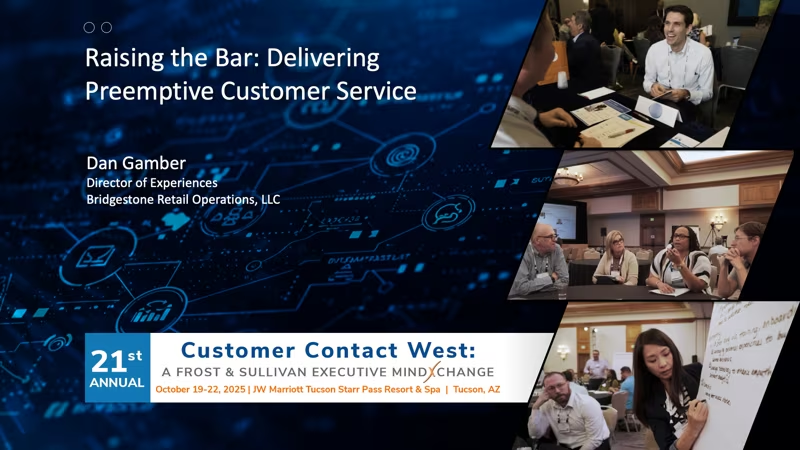We are living in the most difficult era of work in our history.
We’re working longer hours than before the pandemic (an average of three extra hours daily). The lines between work and home are not even blurred – they’ve been eradicated. This is especially true among customer experience employees, whose performance is diligently monitored by their superiors. Additionally, our dependence on technology, while necessary, can deplete and addict us. The ongoing uncertainty and fear in the global economy keep us all working at an untenable pace even when we’re already depleted and can encourage people to do busy work just to look productive, even though it continues to tear them down and make them less effective on their most critical tasks.
At the same time, many people are feeling isolated, disconnected and burnt out because of the extraordinary burden of work and personal responsibilities, the lack of recognition and human connection and the inability to meaningfully interact with the world and each other, to recharge and to regenerate energy.
We may not notice how our own depleting behaviors affect us. That in no way means we are not responsible for the negative impact our energy depletion can have on others. As leaders, we have a responsibility to value and safeguard our own and our team members’ energy. In doing so, we create a more fulfilling employee experience, which converts to a better customer experience.
Evaluating and Improving Energy Support Efforts
Acknowledgement. Is your team’s energy drain the elephant in the room? Have you called it out, or are you waiting for team members to let you know when they’ve had enough? Share your own energy depletion and start detailed, open-ended conversations. Instead of asking “How are you,?” Ask “How are you feeling – physically, emotionally, mentally?” Then make time to listen to the response.
Boundaries. Have boundaries that initially disappeared in the name of flexibility now created an “always-on” pressure for your team members? Does your team have set rules or guidelines for engagement? Work-life flexibility can be hard to come by with the continuous demands and accountability quotas for customer support teams, so it’s important to set your expected boundaries from the get-go and make them reasonable. Decide together when people are expected to be available and when they should disconnect or be okay with not responding to messages.
Expectations. Overwork is a function of responding to others without differentiating more important/critical work, and without taking time for self-care. Are you setting reasonable expectations for your team and for yourself, and unplugging when you need to focus or step away? Setting clear expectations can be a safeguard against overwork-driven reactivity.
Resources. Has your organization set aside resources to support its people? As a leader, it’s your responsibility to find help for team members in need so they can function at the highest level. Share corporate resources like childcare support or an EAP service, encourage use, and check in with team members who may feel reluctant to leverage tools.
Notice. In the digital workplace, people miss the connection and the affirmation that comes from a shared work environment. When people don’t feel noticed or valued, they may spend more time on email showing they are ‘working.’ As their leader, are you giving them the affirmation they need? Take time to notice work more directly and with regularity.
Supporting Yourself First
When you’re in a leadership position, you have the responsibility to look out for others, but you can’t do that without looking out for yourself. You may have reached your current role by working long hours and wearing the “whatever it takes” badge of the ideal worker.
When you’ve lived in this mindset, you can easily fall prey to the idea that acknowledging your need for rest is a weakness or liability. However, “whether we embrace the idea that overwork is essential for productivity and creativity or reject it, we all are defined by it.” (Alex Soojung-Kim Pang, “Rest”). Whether you acknowledge your own need for rest, boundaries and regeneration or try to ignore it, the impact will catch up with you eventually. You do a disservice to yourself and your organization by waiting until that point to address it.
You’re using energy constantly. Renew it.
No matter what you’re doing over the course of a day, you are either spending or recovering energy. Having this awareness is a gamechanger. It gives you the ability to discern where and why your team’s energy is being spent, then to actively focus on creating a healthier, more high-performing work environment.
Andrew Deutscher is the founder and CEO of Regenerate. For over a decade, Andrew has worked with a variety of high performance disciplines from professional athletes to the US Air Force, translating cutting edge strategies for sustained energy and performance to applicable life strategies for high pressure career professionals. In a world of rising demands and increased obligations, he’s helped thousands of managers, leaders, and executives shift from reactive to proactive to recapture their days and win back their lives.



